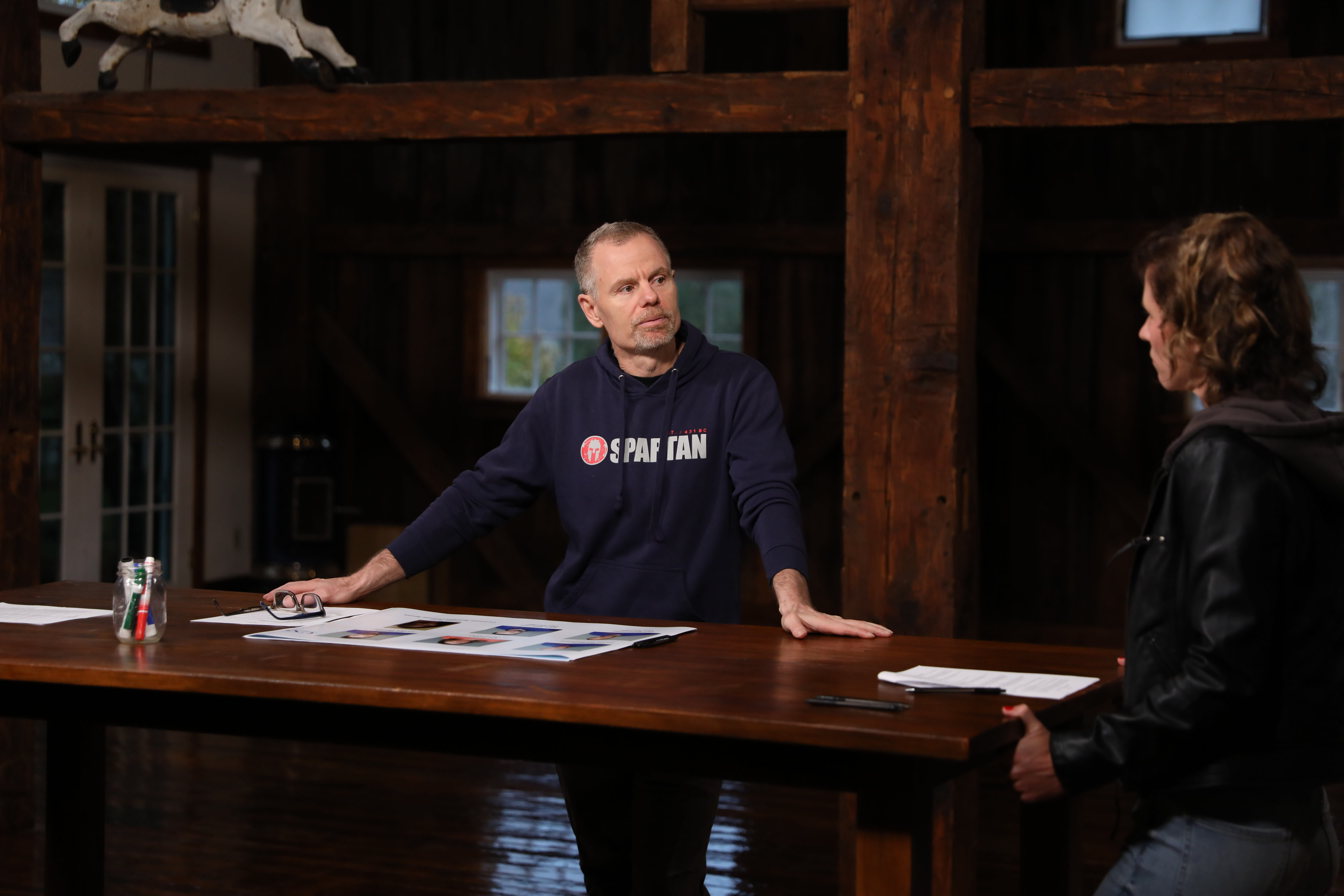
For Joe De Sena, business is “a combat sport.”
De Sena, the 53-year-old founder and CEO of obstacle race franchise Spartan, has spent the past two decades leading corporate training exercises on his farm in Pittsfield, Vermont, for companies including Nike, Google and Goldman Sachs.
Now, he’s the host of CNBC’s new primetime series, “No Retreat: Business Bootcamp,” which premieres Tuesday, March 8, at 10 p.m. ET. On the show, business owners from across the country bring their employees to De Sena’s farm, where he puts them through a series of challenging physical and mental tasks meant to improve teamwork, communication and leadership skills.
For De Sena, physical and mental toughness is just as important when you’re running a work meeting as it is when you’re running a marathon. In some cases, that could mean testing workers’ knowledge about their company as they army-crawl through mud, or implementing team-building exercises that end with a group plunge in icy waters.
“This physical stuff, and this ability to survive the unexpected and be comfortable in uncomfortable [situations], it’s really almost like the armor that you need in business,” De Sena tells CNBC Make It.
The concept comes from De Sena’s own experience leading Spartan: He says he’s learned over the years that staying in peak physical shape makes him a better leader. Neuroscientists agree: Sleeping well and exercising regularly can help make you more productive and focused, among other benefits.
Here’s the Spartan CEO’s advice for identifying the biggest obstacles to your success and overcoming your fears of failure:
How to identify your own weaknesses
When it comes to learning more about how you’re coming up short, De Sena paraphrases an oft-used quote about learning to listen. “Two ears, one mouth,” he says. “Listen more, talk less and get to the front lines.”
A still from the premiere episode of CNBC’s “No Retreat: Business Bootcamp” on March 8, 2022.
Source: CNBC
For leaders, “get to the front lines” means talking directly to customers and low-level employees about what they and their company can do to improve. “If you’re just sitting at your desk, and you’re talking to yourself or your close team, you’re probably not living in reality of what’s really going on,” De Sena says.
The advice applies to everyone, not just managers or business owners: If you’re wondering which weaknesses are standing between you and success, improving your listening skills is probably a good first step. You can usually find someone who will tell you – assuming you’re willing to listen.
How to overcome your fear of failure
De Sena says the first step toward overcoming your fears should be to confront them, because you’ll likely realize that they’re not nearly as scary as you expected. The accompanying feeling of empowerment can help motivate you to greater success.
“In most cases, fear is fiction. Let’s use it as fuel,” he says.
Putting your fears in perspective can also help, he says: “What I say to myself is, ‘It could be worse, I could be living in Ukraine right now, I could be living in Siberia…It’s not that bad.'”
De Sena even takes it a step further: Some of your absolute worst fears could simply be unrealistic, with little chance of ever occurring, he says.
“In pretty much every instance throughout my life, my business career, those things that I was fearful of never came to fruition anyway,” says De Sena. “When I faced them head on, they became fuel. And they became something that was actually a superpower and not a negative, not something that should have stunted me.”
Watch the premiere of “No Retreat: Business Bootcamp” on Tuesday, March 8, at 10 p.m. ET on CNBC.
Sign up now: Get smarter about your money and career with our weekly newsletter
Don’t miss:
Joe De Sena: Want to be really successful? You have to learn 2 hard lessons




